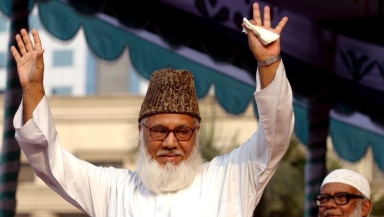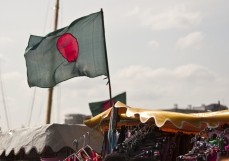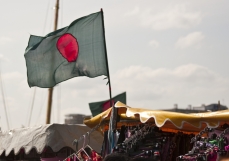Bangladesh's Supreme Court has upheld the death penalty for Motiur Rahman Nizami, the leader of the country's top Islamist party, for atrocities committed during the war of independence from Pakistan in 1971.

Four opposition politicians, including three leaders of the Islamist party, the Jamaat-e-Islami, have been convicted by a war crimes tribunal and executed since late 2013.
The executions have come amid a rise in Islamist violence in Muslim-majority Bangladesh, with militant groups claiming the murder of two foreigners and four secular writers and a publisher last year.
The court rejected an appeal by Nizami, head of the Jamaat-e-Islami, who was sentenced to death in 2014 by the tribunal for genocide, rape and orchestrating the massacre of top intellectuals during the 1971 war.
"The court upheld the death sentence. We are happy with the verdict," state prosecutor Syed Haider Ali told Reuters.
Jamaat-e-Islami, which has said the charges against Nizami are baseless, called for a nationwide strike on Thursday in protest.
Nizami, a former minister, has been in jail since 2010 when he was charged with war crimes by the tribunal set up by Prime Minister Sheikh Hasina that year. He is one of the most significant people to have been found guilty.
Islamists have denounced the tribunal as part of a politically motivated campaign aimed at weakening the leadership of Jamaat-e-Islami, a key ally of the country's main opposition party.
Nizami could be hanged within months unless the Supreme Court reviews his case again, or he is granted clemency by the president.
"My client will decide whether he will file a review petition," chief defense prosecutor Khandker Mahbub Hossain told reporters.
The government has blamed the increase in Islamist violence on the Jamaat-e-Islami but the party denies any link to the militant attacks.
Additional reporting by Reuters.















